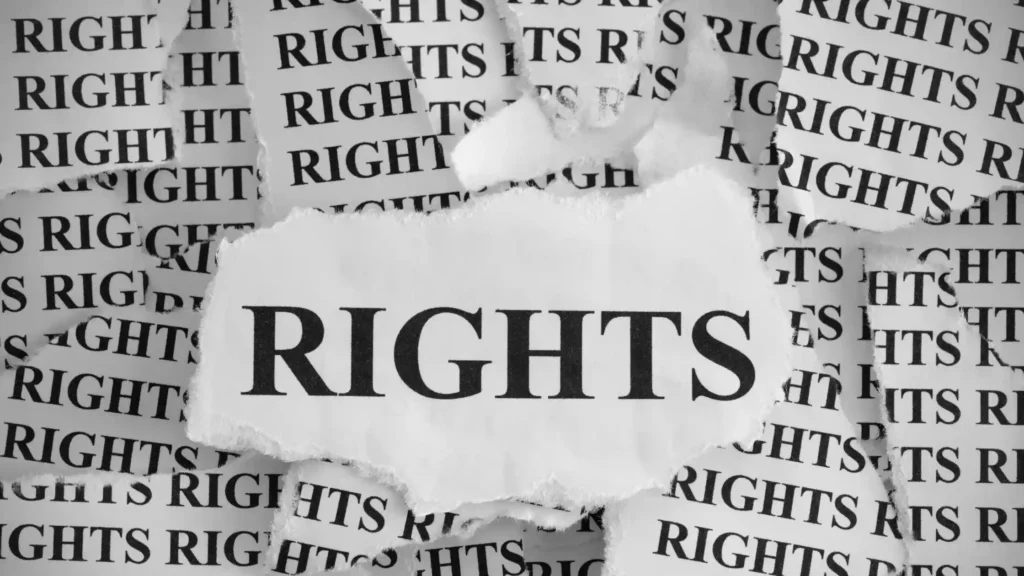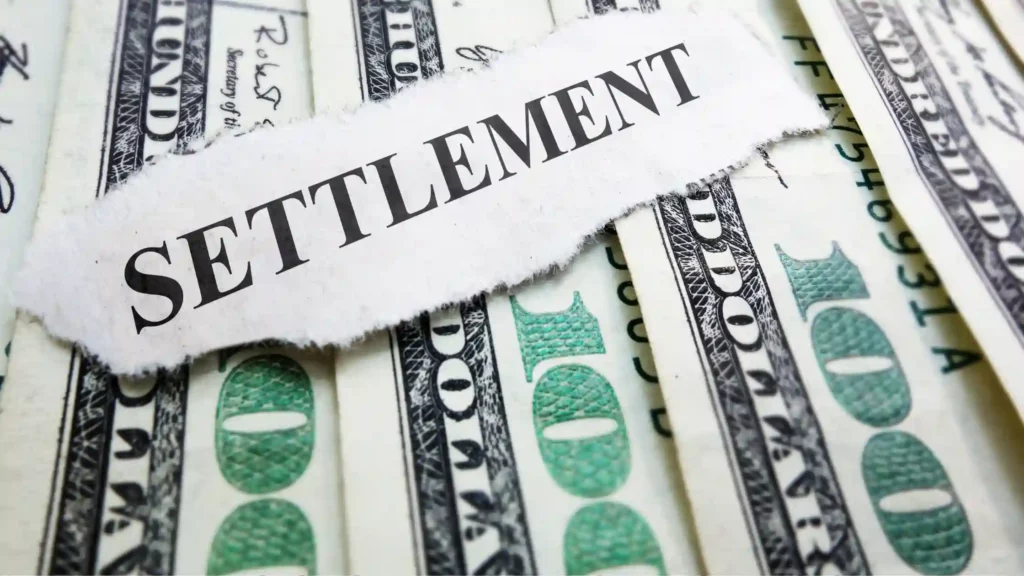Are you being contacted by the CBE Group for a debt you may not owe? Curious about their collection process and tactics? Wondering what your rights are and how to stop harassment?
This article by financial advisor Kevin Keenan covers it all, from requesting validation of debt to beating the CBE Group in court, we provide you with a step-by-step guide on how to navigate this challenging situation.
Stay tuned to learn how to appeal a decision, negotiate a settlement, and when to seek legal help. Let’s get started!
Key Takeaways:
- Know your rights against the CBE Group and how to request validation of debt, dispute the debt, and stop harassment from the collection agency.
- If taken to court by the CBE Group, gather evidence, respond to the summons, attend the hearing, and present your case to increase your chances of winning.
- If you lose the case, consider appealing the decision or negotiating a settlement. Seek legal help when necessary.
Who is CBE Group?

CBE Group is a well-known debt collection agency that specializes in collecting consumer debts.
Known for their professional approach and dedication, CBE Group offers a wide range of services to assist individuals and businesses in managing and recovering outstanding debts.
They work closely with creditors to recover delinquent accounts, utilizing their expertise and experience to navigate the complex landscape of debt collection efficiently.
CBE Group’s reputation in the industry is built on their commitment to ethical practices and compliance with regulations.
With a focus on maintaining positive relationships with both debtors and creditors, they strive to find amicable solutions to resolve outstanding debts while also helping consumers improve their credit reports.
What is the CBE Group’s Collection Process?
The CBE Group’s collection process involves contacting individuals to negotiate debt settlements and may escalate to legal action in cases of non-compliance.
Once the initial contact is made, CBE Group employs various negotiation tactics to reach a mutually acceptable resolution. This may include offering payment plans or reduced settlement amounts based on the individual’s financial situation.
If the debtor fails to comply with the negotiated terms, CBE Group has the option to pursue legal actions to recover the outstanding debts.
Legal proceedings can involve filing a lawsuit, obtaining a judgment, garnishing wages, or placing liens on assets.
How Does the CBE Group Contact You?
The CBE Group typically contacts individuals via phone calls, emails, and letters to communicate debt validation requests and settlement offers.
Debt validation requests play a crucial role in ensuring the accuracy and legitimacy of debts claimed by the CBE Group.
By responding to these requests, individuals can seek verification and details regarding the debts in question, protecting their rights in the process.
CBE Group’s affiliation with organizations like the Better Business Bureau reflects its commitment to transparency and accountability in debt collection practices, providing reassurance to consumers regarding ethical standards.
What Tactics Does the CBE Group Use?
The CBE Group may employ tactics such as aggressive communication, threats of legal action, and misleading information to pressure individuals into debt payments.
These tactics are often used to exploit vulnerable individuals who may already be struggling financially, creating a sense of urgency and anxiety.
Scammers associated with the CBE Group might also engage in identity theft or phishing schemes to extract personal or financial information, further endangering consumers.
Consumer complaints regarding the CBE Group often revolve around harassment, intimidation, and lack of transparency.
Many individuals report feeling overwhelmed and manipulated by the constant barrage of communication and threats from the collection agency.
What Are Your Rights Against the CBE Group?

Individuals have rights protected by laws like the FDCPA when dealing with the CBE Group, including the right to request debt validation and dispute inaccuracies on credit reports.
Under the Fair Debt Collection Practices Act (FDCPA), consumers interacting with CBE Group are safeguarded from abusive or deceptive practices in debt collection. This legislation specifies that individuals have the right to be treated fairly, with respect, and without harassment.
If a consumer believes that CBE Group has violated these rights, they can file a complaint with the Consumer Financial Protection Bureau.
Individuals also have the right to dispute any errors they find on their credit reports, ensuring that their credit history remains accurate and up-to-date.
How to Request Validation of Debt?
To request validation of debt from the CBE Group, individuals can send a formal debt validation letter as per the guidelines outlined by the Fair Credit Reporting Act.
When drafting the debt validation letter, make sure to include your full name, contact details, account number, and the specific debt amount being disputed.
It is crucial to clearly request validation of the debt and state that you are aware of your rights under the FCRA.
Once the letter is prepared, send it via certified mail with return receipt requested to ensure proof of delivery. Keep a copy of the letter and all related documentation for your records.
How to Dispute the Debt?
Individuals can dispute debts with the CBE Group by contacting credit bureaus like Equifax to initiate investigations into inaccuracies or unauthorized claims.
When disputing a debt with the CBE Group, it is essential to ensure that the process is initiated promptly to avoid any negative impact on one’s credit report.
Once Equifax receives the dispute, they are required to investigate the claims within 30 days as per the Fair Credit Reporting Act (FCRA).
Equifax will contact the CBE Group, who must then verify the accuracy of the debt information. If inaccuracies are found, Equifax will update the credit report accordingly, potentially improving the individual’s credit score.
How to Stop Harassment from the CBE Group?
Individuals facing harassment from the CBE Group can seek relief by understanding their rights, reporting violations to authorities like the Consumer Financial Protection Bureau, and exploring legal options to prevent wage garnishment.
When dealing with debt collection agencies like CBE Group, it’s crucial to familiarize yourself with the Fair Debt Collection Practices Act (FDCPA), which safeguards consumers against abusive or unfair practices.
One effective way to tackle harassment is to send a cease and desist letter to CBE Group, clearly stating that you want all communications to cease. This document invokes your rights and can deter unwanted contact.
If the harassment persists, contacting the Consumer Financial Protection Bureau becomes a pivotal step. They can investigate the matter and intervene on your behalf to ensure compliance with consumer protection laws.
What Are the Steps to Beat the CBE Group in Court?
To succeed against the CBE Group in court, individuals must gather evidence, respond to summons appropriately, attend hearings, and present a compelling case through legal channels like SoloSuit or arbitration.
Once you have gathered all relevant evidence, it is crucial to craft a well-structured response to the summons. Pay close attention to deadlines and legal requirements outlined in the court documents. Presenting a clear and organized defense can significantly impact the outcome of your case.
Seek legal guidance to ensure that your responses align with the legal standards and regulations.
Attending hearings is a critical step in the court proceedings. Be prepared to present your case confidently and professionally in front of the judge. Use this opportunity to support your arguments with factual evidence and legal reasoning.
Gather Evidence
Collecting relevant evidence, such as communications, account statements, and court documents, is crucial when preparing to challenge the CBE Group in court, especially in cases involving entities like the U.S. Department of Education.
Ensuring that you have proper documentation can make or break your case. Document types can range from emails and letters to financial records and contracts. These legal filings serve as the backbone of your defense, offering the necessary support to prove your claims against the CBE Group.
In court proceedings, having a well-organized compilation of evidence can significantly strengthen your position and credibility in the eyes of the judge or jury. It’s imperative to understand the significance of each piece of evidence and how it aligns with your legal strategy.
Respond to the Summons
When served with a summons from the CBE Group, individuals must respond promptly to address legal claims and avoid potential adverse judgments in a lawsuit.
Upon receiving a summons, it is crucial to carefully read the document to understand the nature of the claim and the deadline for response. Failure to respond could result in a default judgment being entered against you, leading to serious consequences.
Consulting with a legal professional or seeking legal advice immediately is highly recommended to ensure that your rights are protected and to formulate an appropriate response. Remember, the legal process can be complex, so having expert guidance can make a significant difference in the outcome of the case.
Attend the Court Hearing
Attending court hearings related to CBE Group cases is essential, and individuals can benefit from seeking legal advice to navigate complex legal processes and secure favorable outcomes.
Legal counsel plays a crucial role in providing guidance on how to approach the case, gather evidence effectively, and present a strong defense. Leveraging professional insights can significantly impact the overall outcome of the legal proceedings.
Forbes highlights the importance of strategic legal defense strategies to counter claims made by debt collection agencies like CBE Group. These strategies can include challenging the validity of the debt, negotiating settlements, or even exploring options for debt relief.
Present Your Case
When presenting a case against the CBE Group, individuals should articulate their arguments clearly, provide supporting evidence, and advocate for debt relief or favorable legal resolutions.
Effective case presentation strategies play a crucial role in achieving a successful outcome when dealing with the CBE Group. One essential aspect is to organize your evidence in a clear and concise manner, highlighting key facts that support your claims.
By structuring your arguments logically and providing documented proof of any disputed debts, you can strengthen your case significantly.
- It is also crucial to be well-prepared for potential counterarguments, anticipating the strategies that the CBE Group may employ to challenge your claims. By anticipating their possible moves, you can proactively address any weaknesses in your case.
- Setting clear goals for debt relief or legal outcomes is essential. Clearly defining what you aim to achieve can guide your presentation and help you stay focused on the desired results throughout the legal process.
What Should You Do If You Lose the Case?
If there is losing a case against the CBE Group, individuals can explore options like appealing the decision, negotiating settlements, or mitigating impacts on credit scores.
After receiving an unfavorable decision from the CBE Group, it is crucial for individuals to strategically plan their post-case actions.
One effective approach is to consider the appeals process, which involves reviewing the case details, gathering evidence of errors or discrepancies, and presenting a strong argument to challenge the initial ruling.
Additionally, negotiating settlements with the CBE Group could offer a chance to reach a mutually beneficial agreement, possibly reducing the overall financial burden.
Managing the impact on credit scores is essential in such situations to prevent long-term consequences and maintain a healthy financial standing.
How to Appeal the Decision?
When considering an appeal against CBE Group’s decision, individuals should follow legal procedures rigorously, seek advice from legal experts, and explore potential avenues for appeal, including possible engagement with institutions like Harvard University for legal insights.
Legal procedures are critical in ensuring that the appeal process is conducted appropriately and within the bounds of the law.
Consulting with legal experts can provide valuable guidance on how to navigate the complexities of the appeals process effectively.
Furthermore, seeking input from prestigious academic institutions like Harvard University can offer a unique perspective that may strengthen the grounds of the appeal.
By combining legal expertise with academic insights, individuals can develop a robust strategy for appealing decisions against CBE Group, increasing their chances of a favorable outcome.
How to Negotiate a Settlement?

Negotiating a settlement with the CBE Group involves engaging in constructive discussions, understanding debt terms, and potentially reaching agreements that benefit both parties, such as those utilized in negotiations with entities like the U.S. Department of Education.
Effective negotiation strategies with the CBE Group require clear and open communication to establish a common ground. It is crucial to comprehend the terms of the debt thoroughly to find areas where compromises can be made.
By actively listening to the concerns and needs of both parties, a mutually acceptable agreement can be achieved.
Utilizing a collaborative approach similar to successful negotiation practices in various debt settlement scenarios can facilitate the resolution process.
When to Seek Legal Help?

Individuals facing complex legal challenges with the CBE Group may benefit from seeking professional legal advice to safeguard their rights, financial interests, and explore available protections, including those provided by institutions like Southern Technical College.
Legal expertise is crucial when dealing with the intricate processes and potential disputes that can arise in interactions with CBE Group.
Seeking the guidance of an experienced attorney can provide individuals with a clear understanding of their legal options and avenues for recourse.
Legal professionals can help navigate the intricacies of consumer rights laws and ensure that individuals are adequately protected from any unfair practices.
By engaging with a knowledgeable legal advocate, one can effectively contest any erroneous debt claims and potentially negotiate more favorable outcomes.
Frequently Asked Questions
1. How can I beat CBE Group in court?
The best way to beat CBE Group in court is to gather evidence and build a strong case against them. This can include keeping records of communication, disputing any incorrect information on your credit report, and hiring a lawyer if necessary.
2. Is it possible to negotiate a settlement with CBE Group?
Yes, it is possible to negotiate a settlement with CBE Group. You can try to negotiate a lower amount or a payment plan that works for you. It’s important to keep all communication documented and to make sure any settlement agreement is in writing.
3. Can I dispute the debt with CBE Group?
Yes, you have the right to dispute the debt with CBE Group if you believe it is incorrect or if you never received a notice about it. Make sure to request validation of the debt and provide any supporting evidence to back up your dispute.
4. What happens if CBE Group violates my rights?
If CBE Group violates your rights under the Fair Debt Collection Practices Act (FDCPA), you can take legal action against them. This can include filing a complaint with the Consumer Financial Protection Bureau (CFPB) or suing them for damages.
5. Can I stop CBE Group from contacting me?
Yes, you have the right to request that CBE Group stop contacting you about the debt. This is known as a cease and desist letter. However, this does not eliminate the debt and CBE Group may still take legal action against you.
6. How long can CBE Group try to collect a debt?
The statute of limitations for debt collection varies by state and type of debt. It’s important to know your state’s statute of limitations and make sure the debt is not past that timeframe. If it is, you can use the statute of limitations as a defense in court.
